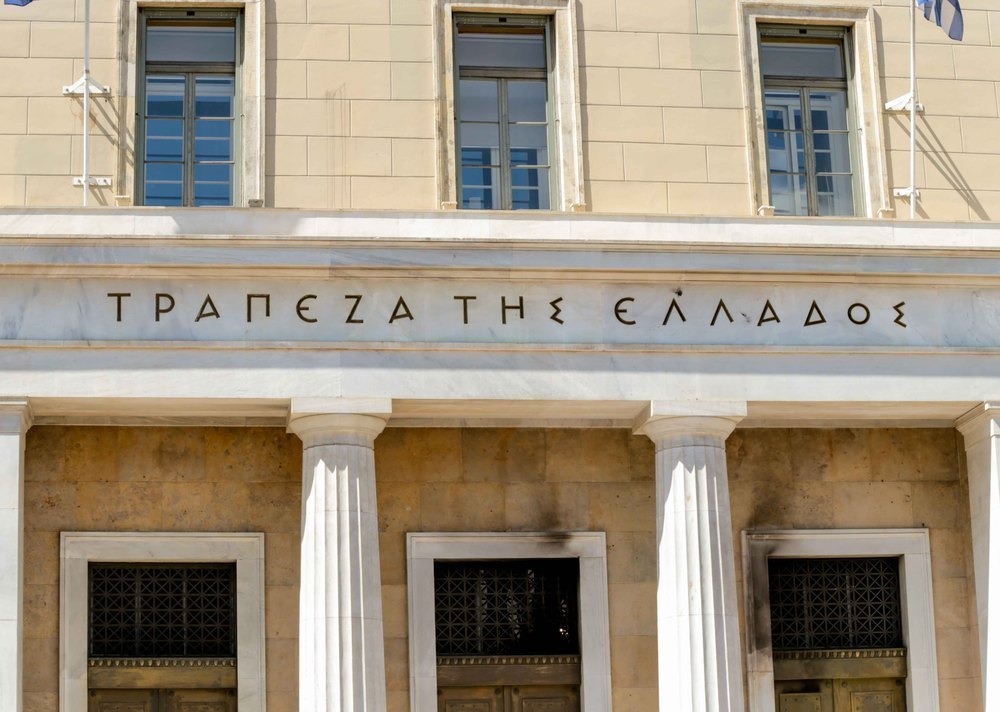According to the Bank of Greece, economic activity expanded at very high rates in 2021 and the first quarter of 2022, offsetting the 2020 pandemic-induced losses. In particular, real GDP grew by 8.3% in 2021, supported by higher private consumption, stronger public consumption, increased private investment, as well as a rapid recovery in exports of goods and services. In the first quarter of 2022, the high growth rate (+7.0% year-on-year) is mainly attributable to private consumption, exports of services, but also to business investment expenditure.
Based on the evolution of the turnover of Greek enterprises and the available short-term indicators of economic activity, regarding e.g. retail sales, building permits and sales of passenger cars, the recovery continues to be broadly based across sectors of economic activity.
Nevertheless, the deterioration of the economic environment and the exacerbation of inflationary pressures, also due to Russia’s invasion of Ukraine, have inevitably created new conditions. As a result, business expectations and consumer confidence declined significantly in April, before strengthening again in May, but remained below their January-February levels. The Purchasing Managers’ Index (PMI) also declined in May, reaching a 14-month low, while remaining at levels suggesting growth.
The main and most visible effect of the energy crisis is an increase in the general level of prices, which reduces the real disposable income of households, in particular the lowest-income groups of society, and intensifies uncertainty about the economic outlook. Inflation, as measured by the Harmonised Index of Consumer Prices (HICP), having fallen to -1.3% in 2020 and partly rebounded to 0.6% in 2021, trended strongly upwards in the first five months of 2022. An upward path, albeit much weaker, was also followed by core inflation (i.e. excluding unprocessed food and energy). It should be noted that the energy component of inflation has continuously been on the rise since March 2021, increasing by 50.8% on average in the first five months of 2022 year-on-year. Headline HICP inflation stood at 10.5% in May and appears to have become more persistent, as higher energy and food prices are now affecting the components of core inflation, i.e. services and non-energy industrial goods.
Financial sector: rising bond yields, falling equity prices and increasing volatility - Greece’s credit rating upgrade is a positive development
Since the beginning of the fourth quarter of 2021, Greek government bond yields have been on an upward trend, in line with international developments, and have increased significantly from their 2021 historical lows and more strongly than the government bond yields of other euro area Member States for similar maturities. This can be explained by the greater sensitivity of low-rated securities, including Greek government bonds, to changes in international monetary and financial conditions. Moreover, concerns about world economic activity, compounded by the war in Ukraine, increase investors’ risk aversion.
However, the first months of 2022 saw also positive developments. These include the upgrade of the credit rating of the Greek sovereign by DBRS and Standard and Poor’s to just one notch short of investment grade. A further one-notch upgrade by these rating agencies will be a very favourable development, as it will place Greek bonds in investment grade territory, with significant benefits in terms of the borrowing costs of the Greek State, banks and private enterprises, while also helping to attract foreign investment.
The annual growth rate of bank credit to non-financial corporations (NFCs) decelerated in the first four months of 2022 and their deposits declined from the very high levels of earlier months, without affecting the high liquidity of the economy. The announced shift of the ECB’s monetary policy to a less accommodative stance to curb inflationary pressures (with a first interest rate increase due to take place in July) will lead to rises in domestic bank interest rates.
The economic outlook is subject to uncertainties and risks
Downside risks to the growth outlook of the Greek economy relate to: (a) a further escalation of the war in Ukraine, which would lead to a further increase in uncertainty and stronger and more persistent inflationary pressures; (b) a new wave of the pandemic; or (c) a low absorption rate of EU funds under the Recovery and Resilience Facility.
A further tightening of global financial conditions and increased risk aversion on the part of international investors pose risks to the financing of the real economy, as well as to the Greek government’s uninterrupted and affordable access to international capital markets. However, the actions being planned by the ECB to prevent financial fragmentation in the euro area are expected to reduce such risks. In addition, significant risks to the inflation outlook are associated with a possible further increase in international energy prices coupled with a depreciation of the euro vis-à-vis the US dollar, as well as the possibility that inflationary pressures may become more permanent, leading to increases in nominal wages and thereby triggering a wage-price spiral.
In the event of a fast and drastic tightening of monetary policy to rein in higher-than-expected inflation and/or a further deterioration in confidence and an economic downturn in Greece’s main trading partners, stagflationary phenomena could be observed in the Greek economy. Additional risks to the Greek economy stem from geopolitical tensions in the Eastern Mediterranean.















